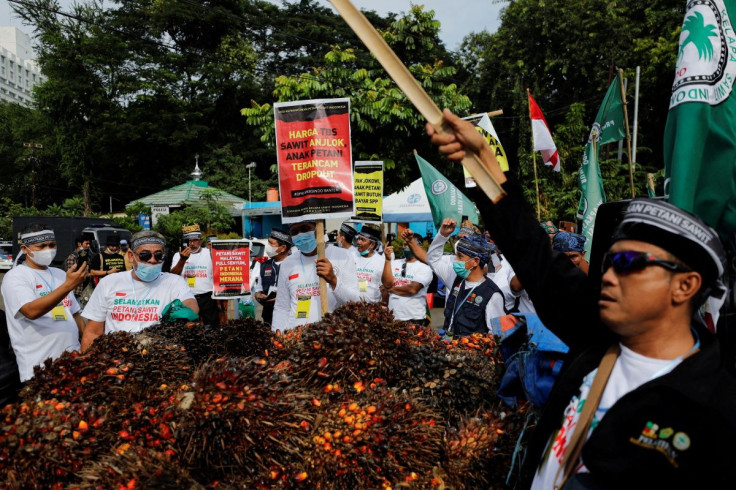Indonesia To Impose Local Sales Rule When Palm Oil Exports Restart

Indonesia will impose a domestic sales requirement for palm oil, to shore up local supplies of cooking oil when the world's biggest producer of the edible oil reopens exports next week, the country's economics minister said on Friday.
President Joko Widodo has announced Indonesia will lift the export ban from Monday after imposing the policy on April 28 in a bid to control high domestic cooking oil prices.
The decision to lift the ban comes despite the price of bulk cooking oil not yet coming down to the government's target of 14,000 rupiah ($0.9550) per litre.
Jokowi, as the president is popularly known, said he expected cooking oil prices to ease toward the intended target and vowed authorities would closely monitor supply conditions.
Indonesia would impose a so-called Domestic Market Obligation (DMO) on palm oil to ensure 10 million tonnes of cooking oil were kept at home, Airlangga Hartarto, Coordinating Minister of Economic Affairs, told a virtual briefing.
"The trade ministry will determine the size of the DMO that would be met by each producer and the mechanism to produce and distribute cooking oil to the communities," he said.
State food procurement agency, Bulog, would be assigned to set up a cooking oil buffer stock, Airlangga said.
The introduction of the export ban had shocked global edible oil markets. Palm oil, used in everything from margarine to frying fats and shampoo, comprises a third of the world's vegetable oil market, with Indonesia accounting for about 60% of supply.
PALM OIL FUTURES REBOUND
Maybank analyst Ong Chee Ting said international crude palm oil prices were expected to soften after the decision to lift the ban.
"As for international buyers, the availability of Indonesian palm oil will somewhat pressure international CPO (crude palm oil) price. Overall, the lifting of the export ban is a relief to Indonesian-based growers," Ong said in a note to clients.
Indonesian farmers had staged protests against the export ban this week.
The domestic price of palm fruits had tumbled by around 70% since the ban, Gulat Manurung, chairman of the Indonesian smallholders group APKASINDO, said in a statement, welcoming the move to reopen exports.
"The export ban has shown Indonesia how important palm oil is for the country," Gulat said.
Malaysian benchmark palm oil contract fell 1.61% in early trade on Friday, before rebounding to gain more than 3% as the market digested news of the domestic sales requirement.
Meanwhile, the Indonesian rupiah strengthened by 0.47% and Jakarta stock index gained about 1.5%.
($1 = 14,660.0000 rupiah)
© Copyright Thomson Reuters 2024. All rights reserved.



















